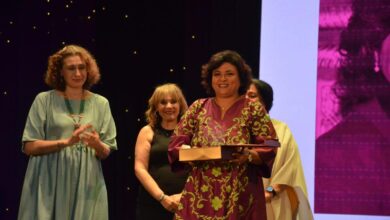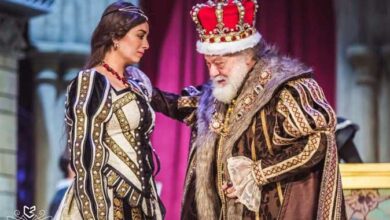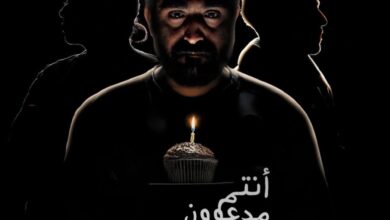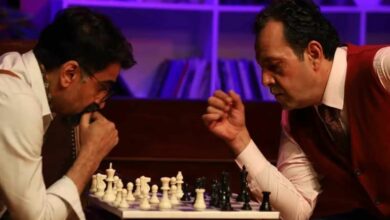By the mid-1930s, the crisis of Egyptian theater had reached its peak. The global economic depression, coupled with new competition from cinemas forced theaters to suspend performances. But in 1935, the minister of culture established the Egyptian National Troupe, headed by the poet Khalil Moutran. That year the troupe began performing and by 1941 they took up residence at Azbakeya Theater.
In August 1942, the troupe was dissolved and re-formed as the Egyptian Troupe for Acting and Music, under the leadership of Mohamed Beik Hassan, a senior official at the Ministry of Culture. Zaki Tolaimat managed the troupe and they presented a number of works by rising playwrights like Aziz Abaza, Mahmoud Taimour, and Ali Ahmed Bakatheer. Starting in 1947, graduates of the Higher Institute for Theatrical Arts, which had opened in 1944, joined the troupe.
In 1950, Zaki Tolaimat, who was also Dean of the Higher Institute for Theatrical Arts, formed a new troupe composed of graduates from the institute. Hamdi Gheith and Nabil el-Alfy joined the newly formed troupe, which was named Modern Theater. The trouped performed plays directed by Abdel Reheem el-Zorqany and Nour el-Demerdash, who were also graduates of the acting institute. In 1953, the Egyptian Troupe for Acting and Music and the Modern Theater merged to form the Modern Egyptian Troupe. The troupe was led by Youssef Wahby until October 1956, when Ahmed Hamroush stepped took over. Hamroush had ambitious plans to develop the troupe, paying special attention to young playwrights.
Since 1956, the troupe, which became known as the National Theater Troupe, has presented the works of young playwrights such as Noaman Ashour, Alfred Farag, Youssef Edrees, Saad Eddin Wahba, and Mikhail Roman. Egyptian theater witnessed a renaissance led by Abdel Rahman el-Sharqawy, followed by Salah Abdel Sabour, Naguib Sorour, Fawzi Fahmi, Samir Sarhan and Youssri el-Gendy. The Ministry of Culture refurbished the historic theater and reopened it on 2 January 1986.
Translated from the Arabic Editition.




